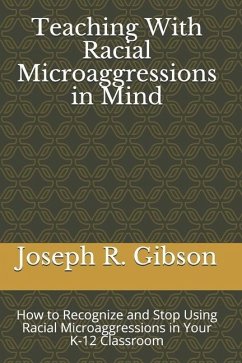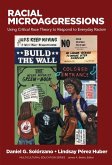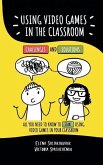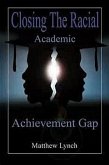Please check out more of our related titles at thePGI.org/global-press!This book was written to promote those typically unfamiliar or unpracticed strategies that if normalized can help us best educate all K-12 students, regardless of race. Accordingly, as opposed to "not seeing color" or somehow ignoring race, the goal is to explore ways to reduce the impact of racism on Black students specifically. "Racism is endemic to American life," noted Mari Matsuda et al., including those minimally diverse K-12 schools and classrooms with almost all or very few Black students. Many educators are becoming increasingly aware of the role of race in the classroom, but too few ever know how race is repeatedly a catalyst for their personal use of racial microaggressions. Consequently, racial microaggressions can and regularly do occur in any classroom, including yours, oftentimes unconsciously, always destructively.I write this fully conscious of the possibility of outright rejection or uninformed rationalization on the part of my target audience: any and all educators of Black students in America. There's also this idea, noted Anne Gregory, that "if we name the phenomenon, it's teacher blaming" even when it's not. Teacher or administrator blaming triggers denial and defensiveness, which is totally counterproductive if the goal is reflection and continuous improvement. My goal is to thoroughly inform, promote accountability, and hopefully inspire change, but certainly not just blame. While homicidal racial violence (e.g., filmed police killings of unarmed Black people) and other "hate crimes receive the most attention," the greatest race-based damage "to the life experiences of people of color is from racial microaggression." These "cumulative insults" perpetuate feelings of inferiority and cause unnecessary, chronic (and brain-changing) "stress to people of color while privileging whites." Regrettably, the "most detrimen¬tal forms of microaggressions can be delivered by well-intentioned individuals who are unaware that they have engaged in harmful conduct toward members of a socially devalued group."Yet, when they are made aware of their behavior, most microaggressors tend to "deny that they intended to offend, believe the person of color raising the issue is 'oversensitive, ' 'paranoid, ' or has simply misinterpreted the situation." Even when acknowledging their unintentional (and usually habitual) use of microaggressions, offenders (oftentimes impulsively seeking self-defense) are more likely to trivialize, exceptionalize, or rationalize than adequately problematize it.Racial microaggressions are absolutely "acts of racism," confirmed Richard Delgado and Jean Stefancic, "consciously or unconsciously perpetrated, welling up from the assumptions about racial matters most of us absorb from the cultural heritage in which we come of age in the United States."Students of color frequently experience racial microaggressions in all kinds of school situations. Research shows that relative to other non-White students nationally, African-American students are more likely to experience them from their microaggression-ignorant teachers and school administrators than from their classmates. Accordingly, it is imperative for all educators (i.e., teachers and administrators) of Black students to intentionally develop our capacity to recognize and confront anti-Black racial microaggressions (i.e., become microaggression-informed) and to stop committing them ourselves. This book will help you do just that by focusing specifically on the unique causes, consequences, and anticatalysts of racial microaggressions being committed against African-American elementary and secondary students every day in classrooms and schools across this country.
Hinweis: Dieser Artikel kann nur an eine deutsche Lieferadresse ausgeliefert werden.
Hinweis: Dieser Artikel kann nur an eine deutsche Lieferadresse ausgeliefert werden.








